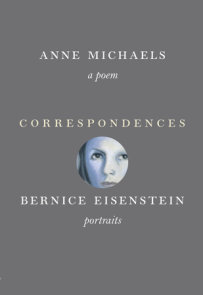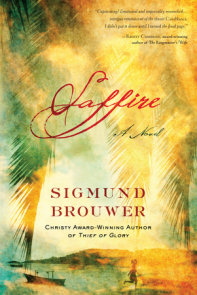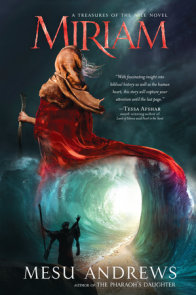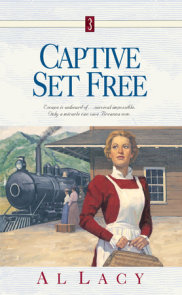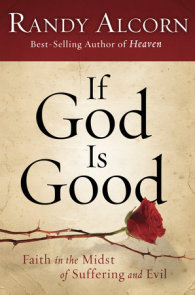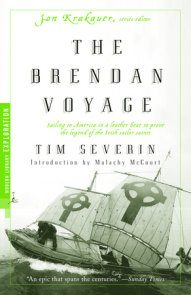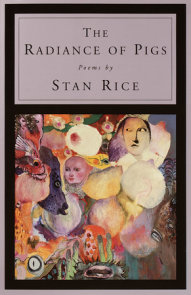READERS GUIDE
Questions and Topics for Discussion
INTRODUCTION
About to turn thirty, Alice is the youngest of three daughters, and the black sheep of her family. Drawn to traveling in far-flung and often dangerous countries, she has never enjoyed the closeness with her father that her two older sisters have and has eschewed their more conventional career paths. She has left behind a failed relationship in London with the man she thought she might marry and is late to hear the news that her father is dying. She returns to the family home only just in time to say good-bye.
Daniel is called many things-“tramp”, “bum”, “lost.” He hasn’t had a roof over his head for almost thirty years, but he once had a steady job and a passionate love affair with a woman he’s never forgotten. To him, the city of London has come to be like home in a way that no bricks and mortar dwelling ever was. He makes sculptures out of the objects he finds on his walks throughout the city-bits of string and scraps of paper, a child’s hair tie, and a lost earring-and experiences synesthesia, a neurological condition which causes him to see words and individual letters of the alphabet as colors. But as he approaches his sixties his health is faltering, and he is kept alive by the knowledge of one thing-that he has a daughter somewhere in the world whom he has never been able to find.
A searching and inventive debut, Ten Things I’ve Learnt About Love is a story about finding love in unexpected places, about rootlessness and homecoming, and the power of the ties that bind. It announces Sarah Butler as a major new talent for telling stories that are heart-wrenching, page-turning, and unforgettable.
ABOUT SARAH BUTLER
Sarah Butler is in her early thirties and lives in London. She runs Urban Words, a consultancy which develops literature and arts projects that explore and question our relationship to place. Ten Things I’ve Learnt About Love is her first novel and will be published in twelve languages around the world.
A CONVERSATION WITH SARAH BUTLER
What compelled you to write this book?
The initial spark for Ten Things I’ve Learnt About Love came from the break up of my long-term relationship with someone I thought I would spend the rest of my life with. We had bought a house together and spent sixteen months doing a lot of work on it. The break up was obviously traumatic on many levels, not least because it involved losing the first place I had really considered to be my home (after leaving my parents’ house). I spent three months “sofa-surfing,” traversing London with a couple of bags from friends’ house to friends’ house. This experience prompted me to think about my own relationship with the city, and the very idea of home. Ten Things for me is an investigation of how and where we are at home; a way of asking whether we can feel at home without a physical house and vice versa; and a consideration of the role of family and relationships in making (or not making) a home. The book is also about my own relationship with London, a love letter to the city if you will.
How has the urban environment shaped your writing?
I see London as one of the main characters of the book. I wanted to find a way to write about this very written-about city that celebrated the overlooked and the everyday. The character of Daniel, as a wanderer (a version of a flâneur I guess) with synaesthesia, allowed me to write this very specific, very detailed version of the city. The novel also grew out of the work I have done both managing place-specific literature projects and as a writer in residence in various parts of the city. All of my work (both my writing and my participatory work) explores the relationship between people, place and narrative, and focuses particularly on the idea of home; Ten Things is a continuation and distillation of all that work and thinking.
Did anything notable or surprising occur during the writing process?
Maybe the most surprising thing for me was how the idea for the novel was born. I was attending a writing course/retreat in the UK and was at a workshop about plot and structure when this novel kind of arrived in my head fully formed. I knew the characters’ names and what would happen. That never changed-the real work was in finding the characters’ voices and the best way to tell the story. I found Daniel a particularly problematic character to write. I spent months writing diaries, letters and bits of back story, volunteering at homeless hostels, reading books and blogs, all the time trying to find his voice. He is so far away from me-his age, his gender, his situation. Another interesting thing was when I returned to my first draft after a few months’ break. I was confident I had written ‘a novel about home,’ but when I re-read it I was struck that I had written a novel about how hard we find it to communicate with each other.
What writers have had the greatest influence on you?
Anne Tyler, Alice Munro, Ali Smith, Margaret Atwood
This novel has sold in fifteen countries. What do you think readers in so many disparate places will relate to in Daniel and Alice’s story?
It’s a story about love and loss, home and belonging, which I suppose are universal themes, whether you live in Sweden, Vietnam, Turkey, or Brazil. Yes, London plays a big role in the novel, but ultimately it’s an exploration of how we live in urban spaces and how we connect or don’t connect to the places we call home.
When you’re not writing, what do you like to do?
I love hiking and cycling, and have done a few epic cycling trips-across Italy, across the Pyrenees and from the northeast tip of Scotland to the southwest tip of Cornwall. Someone once told me I was happier outside than inside and I think that’s true. I enjoy spending time with friends and family, especially if it also involves good food-I come from a family of keen (and slightly competitive) cooks. Curling up on the sofa with a good book and a cup of tea comes pretty high up the list too.
DISCUSSION QUESTIONS









